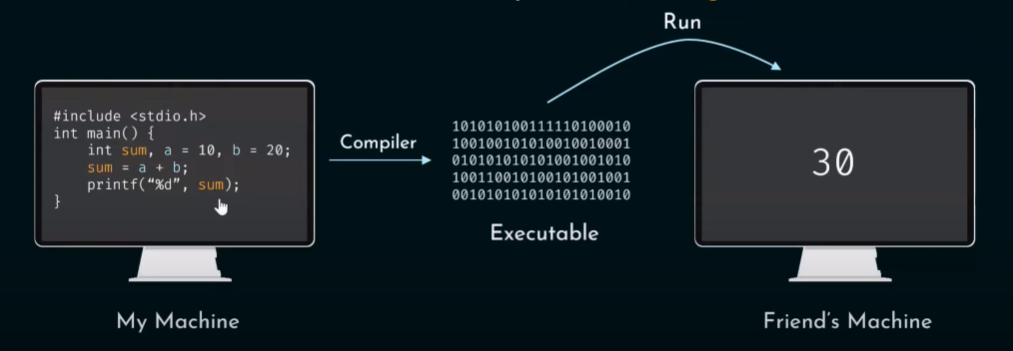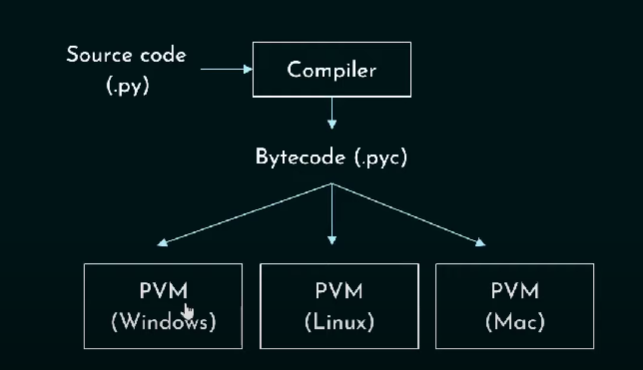

Compiler vs Interpreter
March 18, 2025, 11:48 p.m.
-
What is Translator?
- A translator is a person or tool that converts text or speech from one language to another.
-
Why do we need translator?
- Computer program written using high-level language.
- Only humans are capable to understand high-level language.
- Translator - converts high level language code to the binary language code which machines can understand.
-
How many types of translators? What are they?
- 2 types of translators
- Compiler
- Interpretor
Compiler
-
What is compiler?
-
Compiler is complex piece of software whose job is to convert source code (i.e) human understandable to machine understandable code (i.e) binary code in one go.
-
Before running a code we need to compile.
- After compiled, the compiler translates the source code to machine executable code.
- The executable code will run on the machine.
- If we compile thr code in windows machine then the executable file extention would be .exe
- Also we will get object file. (need not to worry)
-

Note: C is compiled programming language.
Interpreter
-
What is interpreter?
-
Interpreter is a software program written to translate source code (i.e) human understandable to machine understandable code (i.e) binary code but it does that by line by line.
-
Convert each line one by one to machine code on the fly (at run time).
-
Machine 2 also required machine code.
- We don't get executable in response.
-

Note: JS is interpreted programming language.
Compiler vs Interpreter
- Compiler: Translate the source code to machine code in one go.
- Interpreter: Translate the source code to machine code line by line. It never generates the executable.
Pros of compiled languages
- Private code - source code is safe.
- Faster Execution (Compile once run multiple times).
- Fully optimized. (Optimized according to our CPU).
Cons of compiled languages
- No portability (executable is capable to run in similar type of platform - Windows machine alone or MAC alone or Linux machine alone based on which platform it is compiled).
- Extra compilation step (when we change the source code).
Pros of interpreted languages
- Portable.
- Easy to debug.
Cons of interpreted languages
- Required interpreter.
- Slower.
- Public code. (no executable)
Hybrid Approach
- Involves best of Compiler and interpreter.
- Combination of both.
- Code privacy form compilation and portability from interpretaion.
- Interpreter must be installed.
Examples
- Compiled: C, C++, etc.,
- Interpreted: JS, PHP, etc.,
- Hybrid: Java, C#, etc.,

Is pthon interpreted or compiled language?
- Python is both compiled and interpreted language. (HYBRID)
- Interpreter is a part of PVM

Example: Bytecode Generation

Last updated: Dec. 31, 2025, 9:27 p.m.